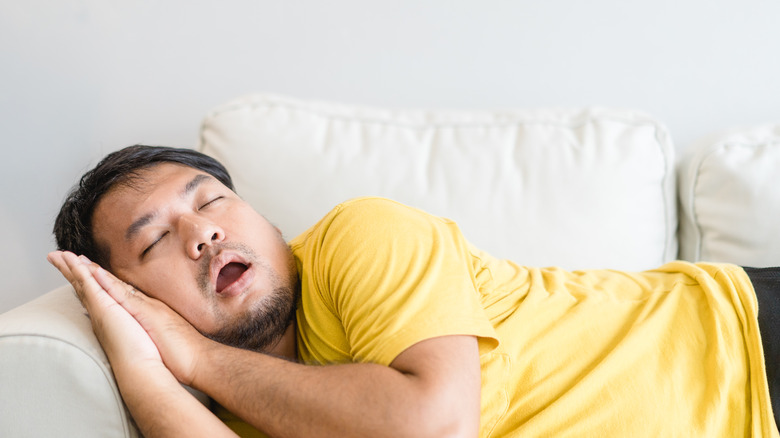It’s no secret that a lack of good-quality sleep can lead to a variety of unsavory health complications. However, a new study published in Neurology discovered that both sleeping too little and sleeping too much — along with a slew of other sleep-related issues — can contribute to the increased risk of stroke.
According to the study, people with sleep issues ranging from snorting and snoring to difficulty falling asleep, napping during the day, and waking up in the middle of the night have significantly higher odds of suffering a stroke than those without sleep disturbances. What’s more, study author Dr. Christine McCarthy says that while each of these individual problems can increase the risk of stroke, “Having more than five of these symptoms may lead to five times the risk of stroke compared to those who do not have any sleep problems” (per Health Day).
Researchers involved in the study examined data from more than 4,500 people, nearly 1,799 of whom had previously suffered an ischemic stroke. The most common kind of stroke experienced across the globe, ischemic stroke occurs when a blood clot obstructs an artery in the brain, preventing blood flow (per CNN). An additional 439 participants had experienced an intracerebral hemorrhage — a type of stroke that occurs when an artery in the brain ruptures, causing brain bleeding. These participants were matched with a person of the same age and sex who had never experienced stroke. Researchers then asked each participant questions pertaining to their sleep quality, and compared the results.
How diferent sleep issues increase the risk of stroke

After comparing the self-reported sleep quality of study participants who’d experienced a stroke versus those who had not, researchers found that while poor sleepers who got just five hours of sleep a night were three times more likely to suffer a stroke than participants who slept the recommended seven hours, those who slept nine hours or more were still twice as likely to have a stroke than those seven-hour sleepers.
Participants with sleep apnea — a condition characterized by the obstruction of the upper airways during sleep — were also three times more likely to experience stoke than those without the sleep disorder. People with sleep apnea often experience symptoms like snoring and snorting, which proved to increase the risk of stroke by 91% and 200%, respectively.
Even something as seemingly harmless as napping for more than an hour proved to increase the risk of stroke by a whopping 88% in comparison to those who didn’t nap during the day, or those who took planned, short naps.
While researchers were able to determine that a link exists between poor sleep quality and the increased risk of stroke, they were not able to prove that it was the cause. Instead, some sleep experts theorize that poor sleep contributes to a range of health conditions — like obesity and hypertension — which are related to increased incidence of stroke (per Medical News Today).